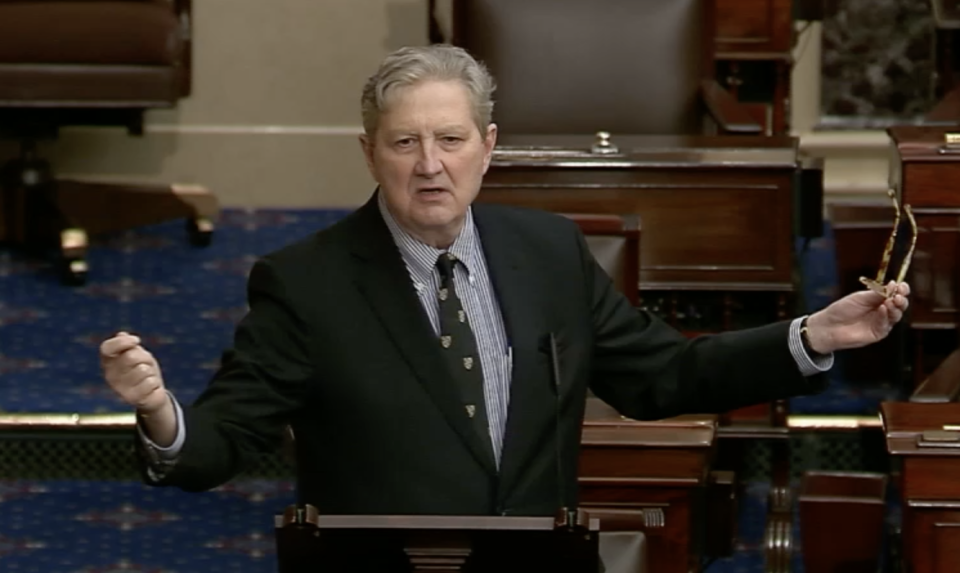October 22
October 22, 2007
Richard Weaver
October 24, 2007Three of four proposed amendments to the state constitution won approval handily Saturday, with only one providing a tax break on jewelry consignments going down to defeat.
Amendment 1 – drawn up to protect the state’s supplemental pay increases for certain local law officers and firefighters from budget cuts – won 675,803 to 469,078, or with about 59 percent of the vote.
Amendment 2 – which would expand the supplemental pay program to include additional law officers and firefighters – won 628,779 to 489,545, or with about 56 percent of the vote.
Amendment 3 – to revise funding requirements for future benefits to members of the state retirement systems – was approved 635,396 to 459,340, or with about 58 percent of the vote.
Amendment 4 – which would provide a property tax exemption for jewelry held on consignment – was defeated by a vote of 616,172 against to 490,141 for, or by 56 percent of the vote.
The supplemental pay amendments were the most controversial. Supporters said they gave needed pay protection to people who are vital to Louisiana residents’ safety and security. But opponents said the two amendments took away needed budgetary control from lawmakers.
Supplemental pay that the state adds to the salaries of local police and firefighters was raised to $425 during the last legislative session. The first amendment on the ballot Saturday was to protect current and future supplemental pay for full-time law officers and firefighters from cuts by the Legislature.
Opponents noted that state officials have limited control over the growth of supplemental pay since the number of eligible people is determined by the hiring practices of local governments. That’s why the nonpartisan Council for a Better Louisiana recommended a vote against the constitutional amendment.
The organization also opposed the second amendment on the ballot, to authorize the expansion of supplemental pay to cover law officers and firefighters working for local port authorities and patrolling waterways and riverfront areas.
State Sen. Francis Heitmeier, D-New Orleans, who sponsored the amendment, rejected the CABL argument.
CABL said that while it supports the work of the public safety officers, their jobs are a local function and the state pay given to them shouldn’t be protected from budget cuts.
The Bureau of Governmental Research, another nonprofit government watchdog, also opposed both amendments.
CABL and BGR supported the third constitutional amendment, requiring the Legislature, when it approves new retirement benefits, to provide a financing stream for those benefits future benefits for the state’s retirement systems.
Proponents argued that it is fiscally irresponsible to increase the state’s unfunded accrued liability on its four retirement systems. Opponents said shortening the payoff time to 10 years could create new problems. Although interest would be saved, short-term payments will be higher. The Legislative Actuary estimates that paying a $1 million liability over 10 years – as specified by the amendment – instead of 30 years would save $1.1 million.
A constitutional amendment passed last year exempted artwork consigned to an art dealer from property taxation. The No. 4 amendment this year included jewelry in the exemption.
According to the Louisiana Jewelers Association, jewelry on consignment has become the largest part of many stores’ inventory. A retailer may put a manufacturer’s more expensive pieces on sale and not pay the manufacturer until they are sold. To avoid paying taxes on the jewelry, the stores may ship it back to out-of-state manufacturers at the end of the year. Jewelers say passing this amendment would allow them to keep more of the expensive items on hand, increasing the chance of sales and higher sales tax.
Opponents said the amendment provided another property tax exemption and hurts the ability of local governments to raise revenue.
BGR opposed the amendment, saying taxation on consigned goods should be considered comprehensively rather than for the benefit of a specific type of business. CABL did not take a position on the amendment.








